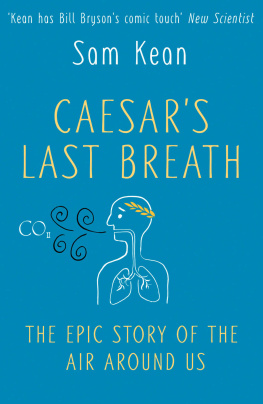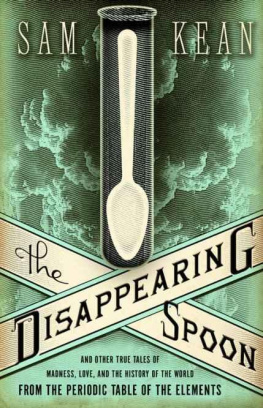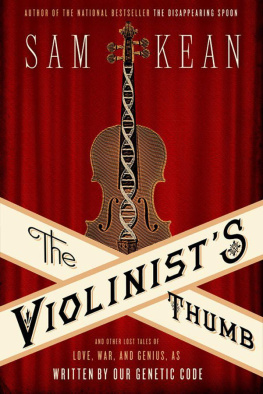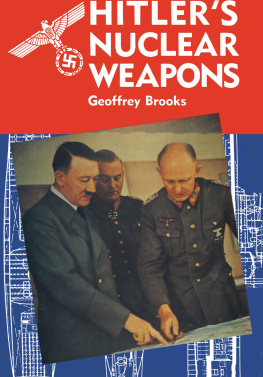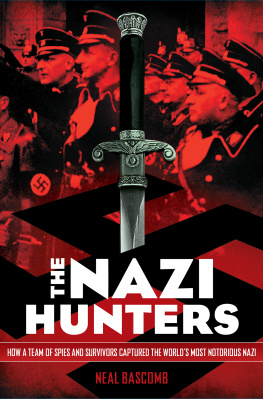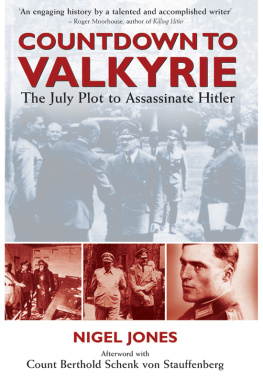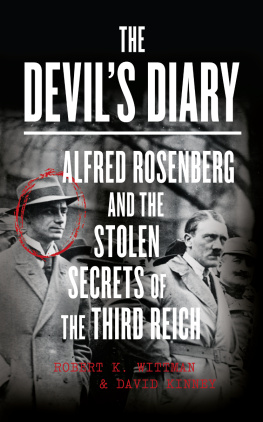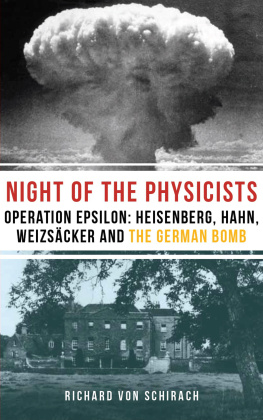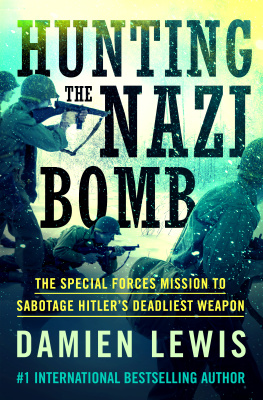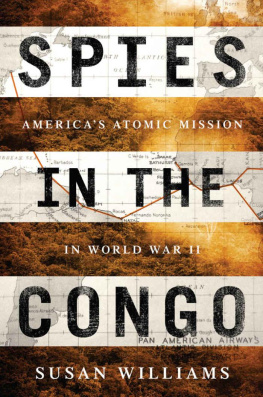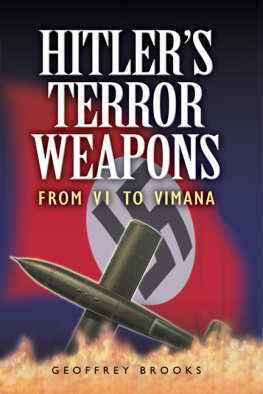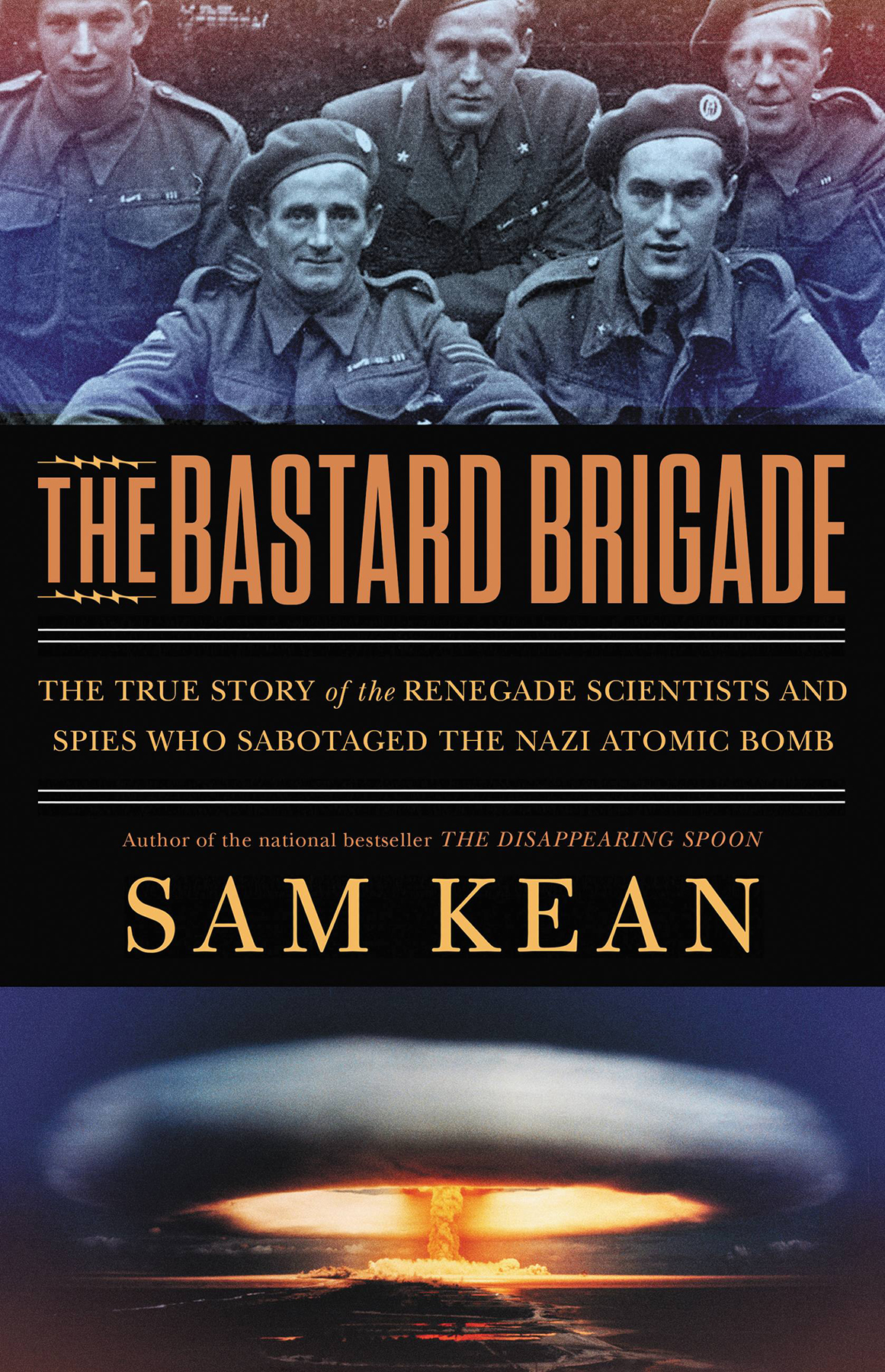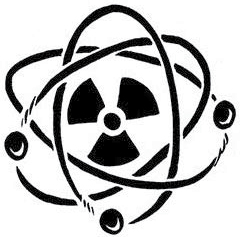Hachette Book Group supports the right to free expression and the value of copyright. The purpose of copyright is to encourage writers and artists to produce the creative works that enrich our culture.
The scanning, uploading, and distribution of this book without permission is a theft of the authors intellectual property. If you would like permission to use material from the book (other than for review purposes), please contact permissions@hbgusa.com. Thank you for your support of the authors rights.
Little, Brown and Company is a division of Hachette Book Group, Inc. The Little, Brown name and logo are trademarks of Hachette Book Group, Inc.
The publisher is not responsible for websites (or their content) that are not owned by the publisher.
The Hachette Speakers Bureau provides a wide range of authors for speaking events. To find out more, go to hachettespeakersbureau.com or call (866) 376-6591.
Strange things may seem reasonable to men who know only enough to fear the worst.
Im often asked, after talks or readings, why Ive never written a book about physics. After all, I majored in physics in college, and I still think its the most romantic of the sciences. No other field has such incredible scope, taking as its domain everything from the structure of subatomic particles to the fate of the cosmos, not to mention all the human-sized things in between. Know physics, know the universe.
But in my previous four books, Ive more or less ignored physics, focusing instead on chemistry, genetics, neuroscience, and the atmosphere. Why? The short answer is that I also had to be true to my second major in collegeEnglish literature. That is, what I really love doing is telling stories, and when Im planning a book, I look for rip-roarin stories first and foremost. I want heroes and villains, conflict and drama, plot twists and redemption. And frankly, I just havent found a physics topic that captured my imagination enough to write a whole book about it.
Until now. The Bastard Brigade is just the sort of physics-adventure tale I always wanted to tellabout the epic quest to stop the Nazi atomic bomb. Science drives this story, no question, but the heart of it is the extraordinary men and women who took on this duty and who were willing to use any means necessaryespionage, sabotage, subterfuge, even murderto achieve it. No matter what type of story were talking about, its the characters that draw us in, and there are pirates and Nobel Prizewinners here, heads of state and Hollywood starlets, people of great strength and people of contemptible weakness. Above all theyre human beingspeople thrown into situations that reveal them at their best and worst.
The Bastard Brigade is also something of a departure for me, a new challenge as a writer. In all my other books, I took one central topic (the periodic table, the human brain, et cetera) and spun out a few dozen tales. As a result, the chapters were largely independent and could stand alone, like a collection of short stories. This book is more unified, more of a novel. Because while there are several threads to the plot, the book really tells one larger story overall, and the truth emerges only in the collective actions of the characters.
And because the characters are central to this adventure, I thought it might help to include a list of them as a reference, . (Ive tried not to spoil anything.) If you need a reminder of whos who, you can always flip back there and peek.
Above all, I hope you enjoy the book. I love physics so much that I wanted to be careful about my first foray into it, and this story is absolutely worth the wait.
spk
As the soldiers darted out of the cottage, the doorframe near their skulls exploded in splinters. This wasnt the first time someone had shot at Boris Pash that day, and it wouldnt be the last. An hour earlier Pash and a lieutenant had crept into the booby-trapped forest surrounding this seaside cottage in northern France. Seven brave resistance fighters had already died in these woods, but Pash had a swashbucklingsome said recklessstreak and had plunged ahead anyway. His mission: to capture a local scientist. As for why he needed to capture him, Pash was keeping mum. But echoing through his mind that day were the last words hed heard from his bosses in Washington a few weeks earlier: Any slight delay in reaching your targets might cost us tremendous losses, or even the war.
This wasnt an exaggeration. Pash led a team of scientific commandos called the Alsos Unit, who roamed around Europe collecting secrets about the most dreadful threat they could imagine: the Nazi atomic bomb project. Because Alsos (all-soss) worked independently, unattached to any larger military group, people called it the Bastard Unit. But the nickname was equally apt for Pash himself, a hard-charging World War I veteran whose unruliness behind enemy lines gave his minders back in Washington gastric ulcers.
At the same time, the desk jockeys needed a bastard like Pash: he took on missions no one else could or would. Like hunting down a scientist in a seaside village in France that was still under Nazi control. The man in question was a Nobel Prizewinning physicist rumored to be collaborating with the Germans on nuclear research. His capture could therefore disrupt the entire Nazi bomb project and keep atomic weapons out of Adolf Hitlers hands.
But after slinking past all the pressure mines and tripwires in the forest, Pash and his sidekick had arrived at the cottage to find something sickening: nothing. The door was ajar and the cottage abandoned, stripped bare and full of debris. They searched everywhere, but there were no documents, no equipment, and certainly no nuclear scientist. Washington had feared that even a slight delay in finding the target could cost the Allies the war. Now the target had vanished. A dejected Pash and his lieutenant made ready to leave. At which point bullets splintered the doorframe near their heads. Then came the machine-gun fire.
Both men dived to the dirt outside and began belly-crawling into the cover of the woods. Given the secret nature of his mission, Pash had told very few people what they were up to that day. He therefore had no idea who was firing at them or whyNazis, Americans, French renegades of dubious loyalty. Whoever it was had one clear objective: to make Pash and his sidekick the eighth and ninth casualties in the hunt for the French nuclear physicist.
Meanwhile, as Boris Pash was dodging gunfire, the Bastard Units new scientific chief was weathering a calamity of his own. Samuel Goudsmit, a soft and somewhat dandyish nuclear physicist, had arrived in London shortly after D-Day, just in time to see the first V-1 rockets smash down. In the dead of night, people in the city would hear a buzzing noise in the dark above them, until the rockets motor cut and it began to plunge. Several seconds of dreadful silence followed; many held their breaths until the


